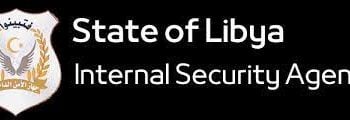By Sami Zaptia.

London, 7 January 2021:
Khalifa Hafter’s official spokesperson, Ahmed Mesmari, yesterday welcomed the proposal of sending international ceasefire monitors to Libya. The revelation was made by the eastern-based Libyan state news agency, LANA, which is closely aligned to Hafter.
According to the report, Mesmari said in that the decision includes ‘‘sending international observers, civilians and retired military personnel, not a military monitoring force’’. This will be made up of several nationalities and international organizations including the African Union, European Union and Arab League.
Mesmari explained that sending a military monitoring force, needs agreements and a resolution from the UN Security Council, and the approval of all parties and parties in Libya, including the armed forces and parliament, noting at the same time that these measures are not required now, as retired civilians and military personnel are sent, to implement the outputs of Geneva in order to solve the problems of the Libyan citizen, stressing that the decision does not conflict with the Geneva Agreement.
There is a lack of trust between the two conflicting sides
He added that the factor of trust is missing between the Libyan parties, which requires factors to help restore confidence even temporarily, in preparation for the return of unified institutions, and the work of a permanent constitution to ensure the stability of the situation.
Withdrawal of troops from frontlines and departure of foreign forces/mercenaries
Mesmari explained that the withdrawal of some military units is not on the table at all, and that the most important issue is the departure of foreign forces and mercenaries in the remaining 90 days as set out by the ceasefire agreement, and that international monitoring if it can implement this item, would be welcomed by Libyans.
Turks v Wagner?
He stressed that the international monitoring mission, whose mission is to refer to those who are breaking the agreement, stressed that the removal of foreigners, especially Turks, who brought tens of thousands of mercenaries and brought their drones and full troops, requires a real strong will from the international community.
He did not, however, refer to foreign troops or mercenaries on his side, including Wagner forces.
Departure of foreign forces and mercenaries is key
The departure of mercenaries from Libya is the main guarantor of stability and avoids future tension in the country, he added
“Turkish provocations are continuing and do not serve any course in the political process in the country,” he said, calling on the United Nations, despite its weakness, to take responsibility and call things without equivocation.
Mesmari noted that the UN role in Libya, through the deployment of surveillance forces, is not a guarantee of stability, recalling some other countries where the presence of forces on the ground has not been effective in achieving security.
Mesmari touched on the experience of UN international monitoring which he noted has not been successful in many experiments, including several African countries, Yemen and Iraq. He pointed out that the international mission is required to determine who is obstructing the efforts of settlement and solution and who is handicapping peace, and who is obstructing the opening of the coastal road.
UNSMIL calls for reopening of coastal road
It will be recalled that yesterday, UNSMIL called on both parties to swiftly finalize ongoing negotiations to re-open the coastal road.
Reopening coastal road, withdrawal of foreign mercenaries and demining
It must also be borne in mind that there is a split within the forces aligned with the internationally recognized government in Tripoli on reopening the coastal road, which was listed in the 5+5 Joint Military Commission (JMC) agreement as one of the confidence-building measures.
Some pro-Tripoli forces are insisting that the Khalifa Hafter forces and their international allies and mercenaries, including Wagner forces, withdraw from the battlefront and demine the minefields they had laid – prior to the reopening of Libya’s main coastal road running west to east.
Guterres calls for international monitoring of Libya’s ceasefire
As a possible way to bypass this impasse and the lack of confidence between the two conflicting Libyan parties, last month, United Nations Secretary General Antonio Guterres called for the formation of an international committee to monitor Libya’s ceasefire.
This, he had said, would comprise of civilians and retired military personnel from international bodies such as the African Union, the European Union and the Arab League.
“I call on all concerned local, regional and international bodies to respect the outcome of the ceasefire agreement and to ensure its implementation without delay,” Guterres said.
“I urge Member States and regional organizations to support the mechanism for implementing the ceasefire, including the provision of personnel for observation under the supervision of the United Nations.”
He also called on ‘‘All countries to abide by the arms embargo imposed by the United Nations on Libya, which is subject to flagrant violations.”
Hafter, through his spokesperson Mesmari, seems to be now responding positively to this proposal by Guterres. It could end the current impasse in implementing the ceasefire, herald the agreement on the new unified interim Libyan government, and the constitutional arrangements which would pave the way for the planned 24 December elections.








